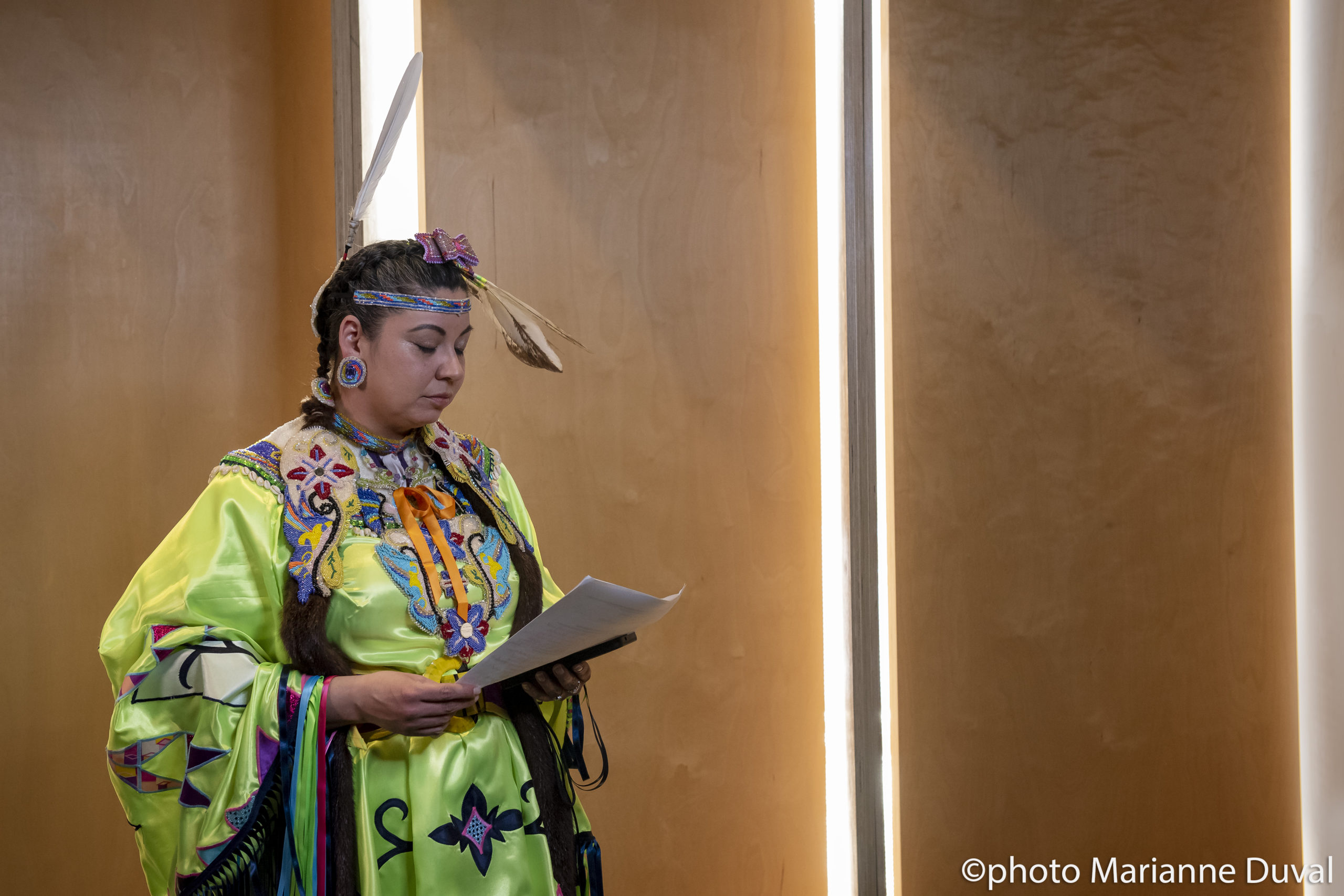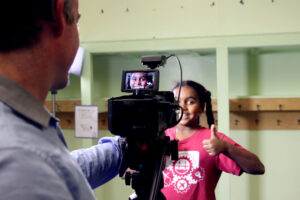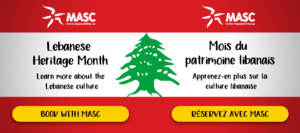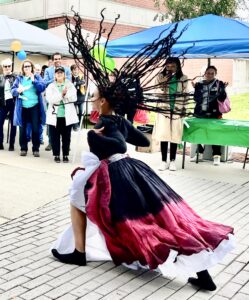Interview: Stephanie Sarazin, Artistic Director of Indigenous Experiences
By Jessica Ruano | December 3, 2021

This interview was originally published on Apt613.ca
Indigenous Experiences offers a rare opportunity to experience the traditional culture, teachings, and history of Canada’s Indigenous Peoples from a First Nations perspective. Their program brings this rich history to life through authentic, fun, and interactive learning experiences. Audience members have the opportunity to participate in traditional activities and games that provide insight into historical and contemporary Indigenous life. In this interview, Artistic Director of Indigenous Experiences Stephanie Sarazin talks about the joy in sharing her traditions through arts education and inspiring young people to preserve and care for the land we live on.
Some of the Cultural Ambassadors of Indigenous Experiences. Photo: Alejandro Salgado Cendales.
MASC: In your work with Indigenous Experiences, you have described yourselves as “Cultural Ambassadors.” What does that term mean to you in an arts education context?
At Indigenous Experiences, we call our artists Cultural Ambassadors because that title is more reflective of the role that they have in sharing and teaching authentic and culturally appropriate knowledge while representing their distinct Nations and communities, honouring the legacy of our ancestors, and keeping traditions alive for generations to come. Our Cultural Ambassadors take pride in sharing their gifts and culture through dynamic, interactive, and authentic artistic and cultural programs in an educational setting. They each bring their own unique and diverse traditional and cultural knowledge and experiences. They are gifted at creating inclusive cultural bridges in a sharing environment that sparks curiosity and interest, through legends and storytelling theatre that bring to life stories and teachings old as time immemorial.
MASC: This past Wednesday, September 30, was Orange Shirt Day. How does the legacy of the residential school experience inform the material you share in your workshops and performances?
Everything that we do, everything that we know, everything that we are today, has survived because of our ancestors — and many of them are survivors of residential schools. We honour them each day that we share our teachings and celebrate our culture. Whether we are passing down our cultural knowledge to Indigenous people or non-Indigenous people, we are honouring our residential school survivors by keeping traditions alive that were for a long time made illegal by the Canadian government. It is because of the bravery of our ancestors that we are able to share our culture with the world today.
Photo: Alejandro Salgado Cendales.
MASC: In your years performing Indigenous dances and stories for children, youth, and seniors, do you find there has been an increase in understanding of Indigenous cultures among the different age groups? What more can educators and community leaders do to give people of all ages a solid foundation in the history of Turtle Island and the Indigenous communities in Canada today?
I believe that there has been an increase in the understanding between Indigenous and non-Indigenous people as a whole. However, I do believe that there is a lot still to be learned. One of our main teachings is to care for the land as if we are preserving it for our great-great-great-great-great-grandchildren.
There are many things that people can do to further their own Indigenous foundation. You can know/acknowledge/recognize the traditional land/territory you reside on. You can protect our lands and water systems — it’s not just a “native thing”; we all live here together! And you can learn your area’s real history.
MASC: As a member of MASC, what do you gain through offering your workshops in schools and in the community?
It has been an absolute pleasure working with the staff and other artists in the MASC community. The team is always so helpful in connecting us to the proper schools and workshop participants. They make our booking process fun and easy. They are all very knowledgeable in their respective fields! Working alongside MASC has also opened up many doors to our many diverse neighbouring communities we have within the surrounding area. We have been to many exciting events and activities over the years thanks to MASC. As artists, we feel a sense of community working alongside such a wonderful group.
When we share our workshops and presentations within the schools and communities, we feel a sense of pride and honour in being able to share these gifts with our guests/friends of the day.
We enjoy developing a keener interest in our culture, and we get a real feeling of accomplishment because our culture is so deep that we merely scratch the surface with our presentations and workshops. We enjoy watching this interest grow and develop beyond the first experience.
Latest News
View All Articles



